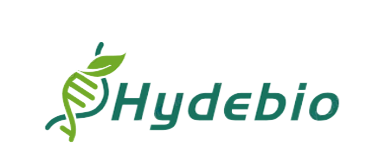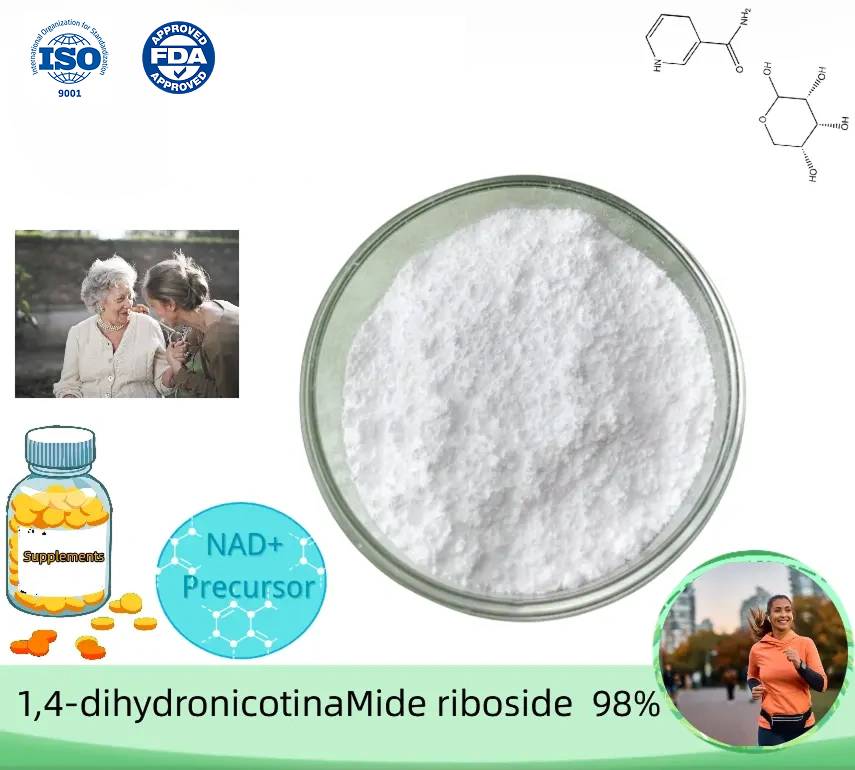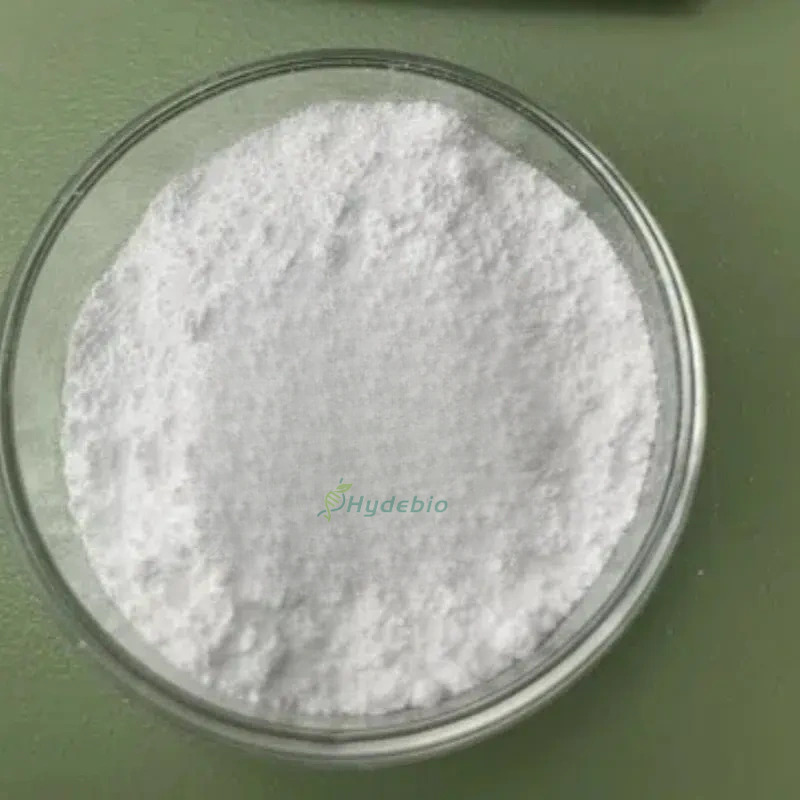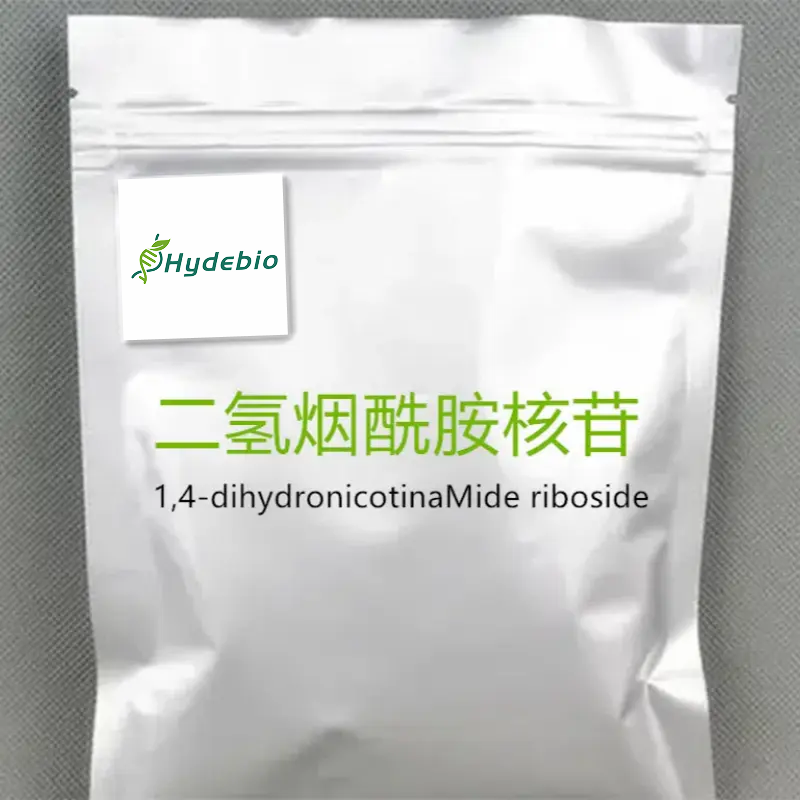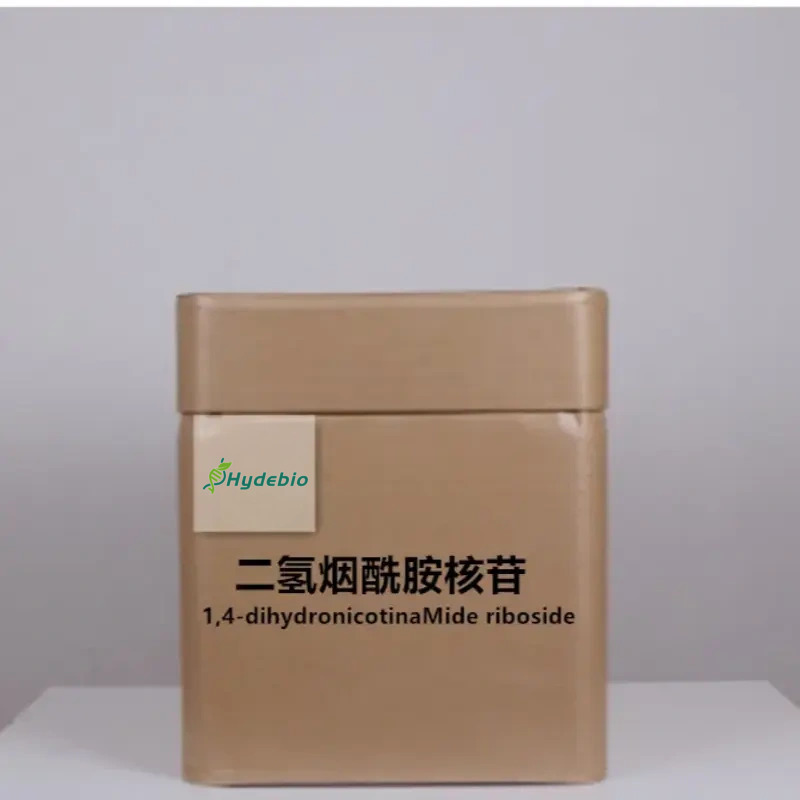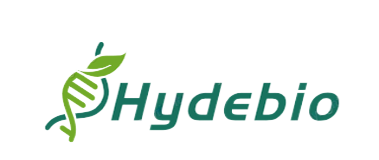Description
1,4-dihydronicotinamide riboside, also known as NRH.The reduced form of NRH is a potent NAD+ precursor that helps to replenish its levels in the cell.
First and foremost, it is important to understand the role of NAD+ in the body. NAD+ is a coenzyme that is involved in numerous cellular processes, including energy metabolism, DNA repair, and gene expression. As we age, our levels of NAD+ decline, which has been implicated in the aging process and age-related diseases. This has led to a growing interest in identifying molecules that can boost NAD+ levels in the body, and 1,4-dihydronicotinamide riboside is one such molecule.
1,4-dihydronicotinamide riboside is a potent NAD+ precursor, and research has shown that it can effectively raise NAD+ levels in cells. This has led to speculation that 1,4-dihydronicotinamide riboside supplementation could have therapeutic potential in a wide range of health conditions, including metabolic disorders, neurodegenerative diseases, and aging-related decline.
In fact, there is evidence to suggest that 1,4-dihydronicotinamide riboside may be even more effective than its parent molecule, nicotinamide riboside, at increasing NAD+ levels. This is because 1,4-dihydronicotinamide riboside is a more potent reducer, meaning it is better at donating electrons to the NAD+ synthesis pathway. As a result, it has the potential to more efficiently fuel cellular NAD+ production.
In addition to its role in NAD+ biosynthesis,1,4-dihydronicotinamide riboside also possesses antioxidant properties. Oxidative stress, which results from an imbalance between free radicals and antioxidants in the body, is implicated in numerous diseases, including cancer, cardiovascular disease, and neurodegenerative disorders. By scavenging free radicals and reducing oxidative damage,1,4-dihydronicotinamide riboside may offer additional health benefits beyond its role as an NAD+ precursor.
